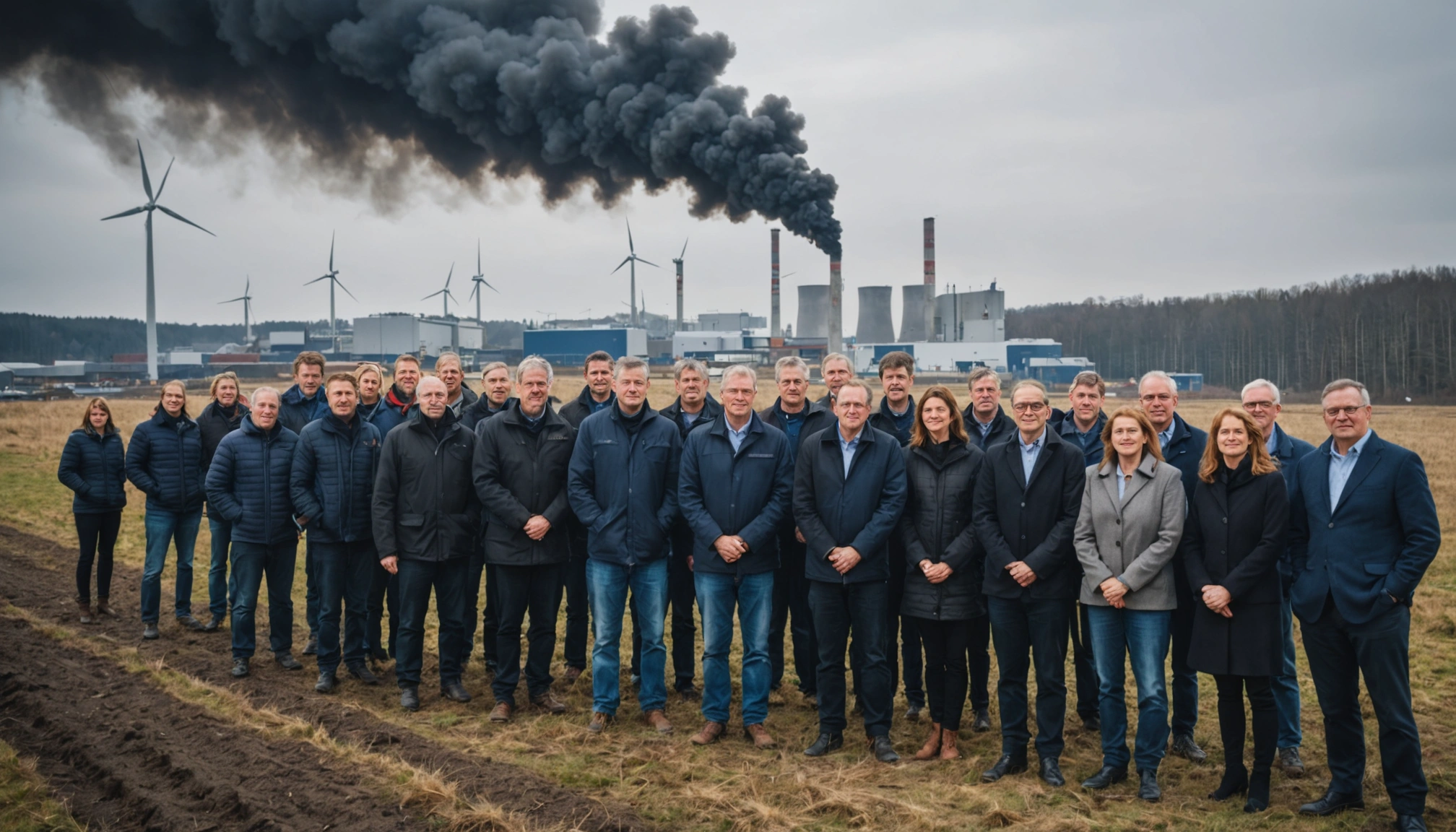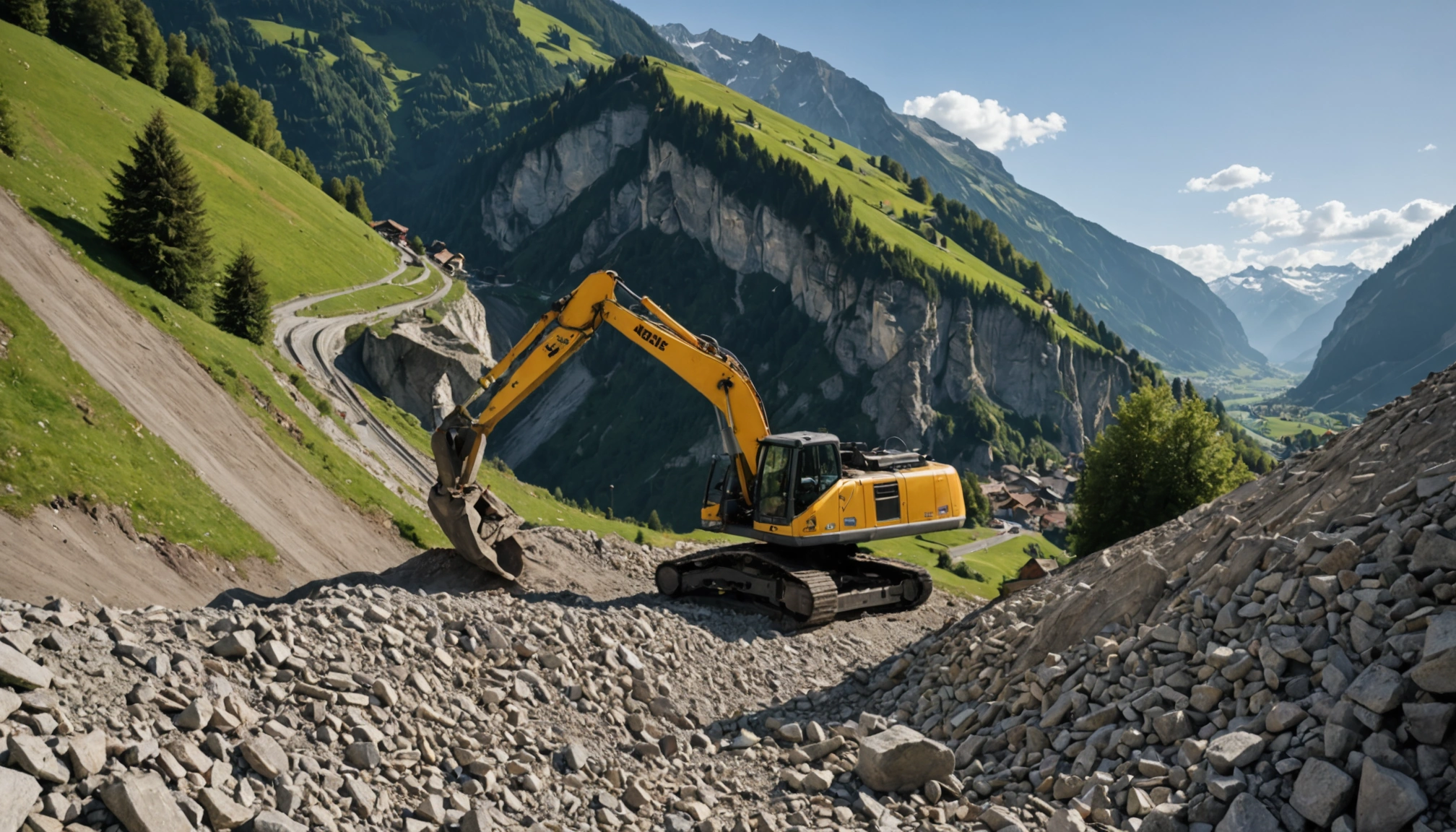German Court Rejects Climate Case Against Energy Giant RWE

A German court has dismissed a lawsuit brought by a Peruvian farmer against the energy giant RWE, seeking to hold the company accountable for its contribution to climate change. While the court rejected the specific claim, the ruling has been hailed by some as a potential landmark, acknowledging the possibility of holding major emitters liable for the impacts of their emissions. The case, which has been ongoing for nearly a decade, highlights the growing trend of climate litigation and the complex legal challenges of attributing responsibility for global warming.
The Case: Lliuya v. RWE AG
Saúl Luciano Lliuya, a Peruvian farmer and mountain guide, filed the lawsuit against RWE in 2015. Lliuya argued that RWE, as one of Europe's largest polluters, was partly responsible for the increased flood risk facing his hometown of Huaraz, located in the Andes Mountains. The town is threatened by the melting of glaciers in the region, which could cause a glacial lake to overflow and inundate the area. Lliuya sought to have RWE pay for a portion of the flood defense project needed to protect Huaraz, proportional to the company's contribution to global emissions since the Industrial Revolution, which he estimated to be around 0.5%.
The Court's Decision
The Higher Regional Court in Hamm dismissed Lliuya's appeal, stating that there was no "concrete danger to his property" from a potential flood. The court-appointed experts assessed the probability of flood risk to Lliuya’s property at only "1 per cent over the next 30 years". The court found that Lliuya was unable to provide sufficient evidence of a serious and imminent threat of damage to his property from a flood wave originating from an upstream glacier lagoon. The court also ruled out any possibility of appeal.
A Potential Precedent
Despite dismissing the case, the court acknowledged a key principle: major emitters can be held liable for the impact of their greenhouse gas emissions. Presiding Judge Rolf Meyer stated that under German law, it is possible that a polluter may be ordered to cut emissions or bear the costs of climate damages. This acknowledgment has been viewed by some legal experts and environmental advocates as a significant step forward in climate litigation. Roda Verheyen, Lliuya's attorney, called the verdict a "milestone" that will provide a "tailwind to climate lawsuits against fossil fuel companies." She emphasized that "for the first time in history, a high court in Europe has ruled that large emitters can be held responsible for the consequences of their greenhouse gas emissions."
RWE's Response
RWE has consistently argued that a single emitter of carbon dioxide cannot be held responsible for climate change. The company maintains that attempting to create a legal precedent through the courts is a misplaced approach to addressing climate protection policies. RWE stated that it considers such civil 'climate liability' to be inadmissible under German law, arguing that it would have unforeseeable consequences for Germany as an industrial location, potentially exposing any German company to claims for climate change-related damages worldwide. RWE is currently phasing out its coal-fired power plants.
Implications for Climate Litigation
The dismissal of Lliuya's case underscores the challenges of proving direct causation between a specific emitter's actions and specific climate change impacts. Climate change is a global phenomenon with numerous contributing factors, making it difficult to establish a clear and direct link between one company's emissions and a particular event, such as the melting of a glacier. However, the court's acknowledgment of potential liability for major emitters could pave the way for future climate lawsuits. It suggests that while proving direct causation may be difficult, it is not impossible, and that companies could be held accountable for their contribution to climate change if a sufficiently strong link can be established. Other similar climate lawsuits against Volkswagen, Mercedes-Benz and BMW have been dismissed by German courts.
The Future of Climate Accountability
The case of Lliuya v. RWE AG highlights the growing pressure on corporations to take responsibility for their environmental impact. As climate change continues to worsen, legal challenges seeking to hold companies accountable for their emissions are likely to increase. While the legal path to establishing liability for climate change damages remains complex, the German court's ruling suggests that the door is open for future litigation. This could lead to greater corporate accountability and incentivize companies to reduce their emissions and invest in climate-friendly technologies. The ruling also underscores the importance of international cooperation and policy frameworks to address climate change effectively.
Related Articles


